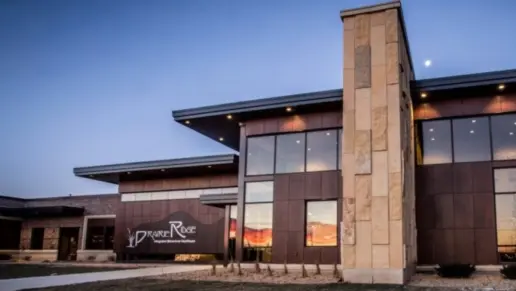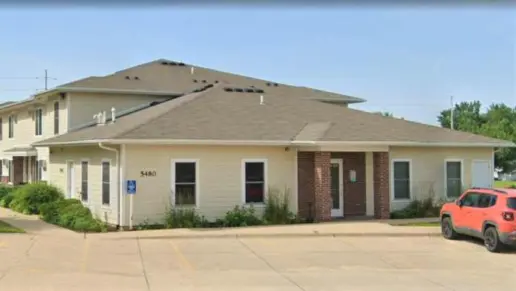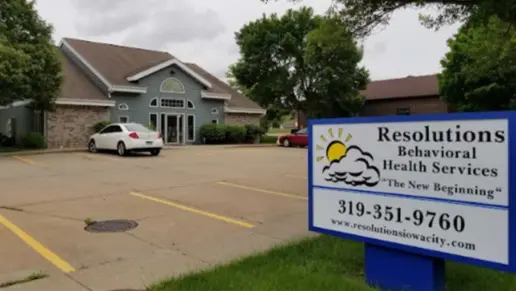About Community Family Resources – Fort Dodge
Community Family Resources is an organization in Fort Dodge, Iowa, that offers clients prevention and treatment services for substance abuse. Clients have the option of either participating in the outpatient or inpatient program. They also offer same day substance use evaluations on their listed days and times.
After the evaluation, clients will be referred to the level of care the staff deems appropriate for their health issues. Individuals should be prepared to spend at least 2.5 hours for their evaluation. For individuals whose second language is English, they have language translation services which include access to a live interpreter to help make the process go smoothly.
In the outpatient programs, patients will participate in counselor led therapy groups and learn recovery skills and relapse prevention. The counselor will also discuss other topics such as compulsive behaviors and thought-stopping exercises. A great thing about this location is they offer various services that are tailored to specific types of clients. These services include gender-specific programming, jail-based programming and services for those with post-traumatic stress disorder (PTSD). When a client reaches the continuing care phase of their treatment, they’ll continue to be guided on relapse prevention skills to help them continue to avoid substance use.
Community Family Resources has two residential treatment programs for adults and adolescents. In the adult residential treatment program, clients participate in over 50 hours of programming every week with the staff members. Prior to this, an assessment is completed that will help them build motivation for recovery and identify their mental and emotional needs.
The adolescent residential program is similar with 50+ hours of program participation. Adolescent clients will spend 30 to 90 days at the facility where counselors will guide them on different topics such as learning recovery skills and building relationships.
Latest Reviews
Rehab Score
Gallery
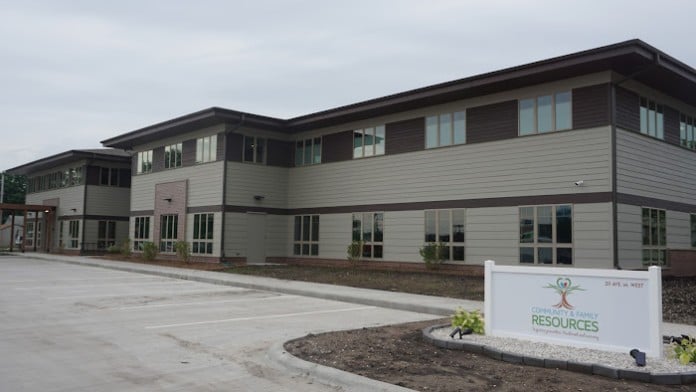
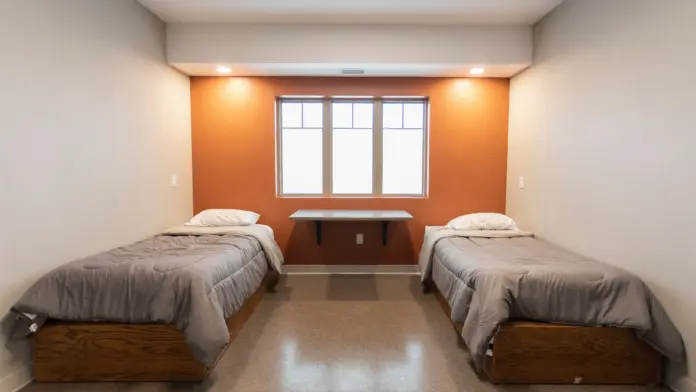
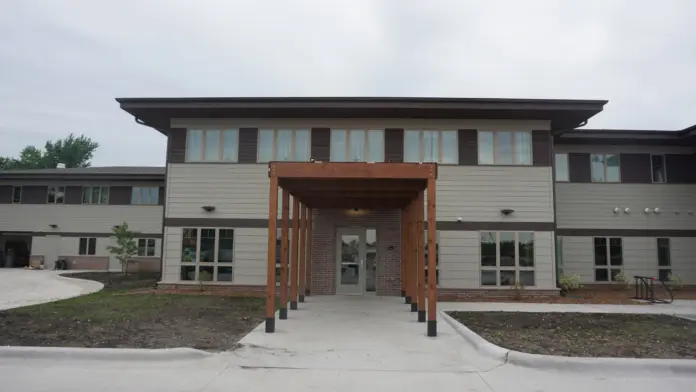
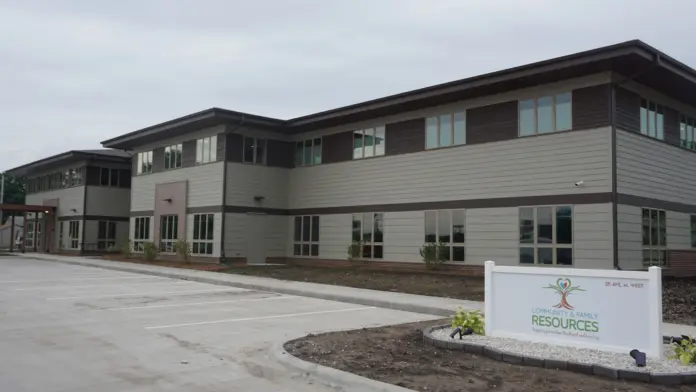
Location
Other Forms of Payment
Private insurance refers to any kind of healthcare coverage that isn't from the state or federal government. This includes individual and family plans offered by an employer or purchased from the Insurance Marketplace. Every plan will have different requirements and out of pocket costs so be sure to get the full details before you start treatment.
Self-pay involves paying for treatment out of your own pocket. You can use savings or credit, get a personal loan, or receive help from family and friends to fund your treatment. If you don't have insurance or your insurance plan doesn't cover a specific program, self-pay can help ensure you still get the care you need.
Financial aid can take many forms. Centers may have grants or scholarships available to clients who meet eligibility requirements. Programs that receive SAMHSA grants may have financial aid available for those who need treatment as well. Grants and scholarships can help you pai for treatment without having to repay.
Medicaid is a state based program that helps lower-income individuals and families pay for healthcare. Medicaid covers addiction treatment so those enrolled can use their coverage to pay for rehab. When a program accepts Medicaid the client often pays very little or nothing out of their own pocket.
Military members, veterans, and eligible dependents have access to specific insurance programs that help them get the care they need. TRICARE and VA insurance can help you access low cost or no cost addiction and mental health treatment. Programs that accept military insurance often have targeted treatment focused on the unique challenges military members, veterans, and their families face.
Addiction Treatments
Levels of Care
Treatments
The goal of treatment for alcoholism is abstinence. Those with poor social support, poor motivation, or psychiatric disorders tend to relapse within a few years of treatment. For these people, success is measured by longer periods of abstinence, reduced use of alcohol, better health, and improved social functioning. Recovery and Maintenance are usually based on 12 step programs and AA meetings.
Drug rehab in Iowa is available in many formats. A variety of inpatient and outpatient options provide programs that are tailored to individual needs, making recovery possible for everyone.
Many of those suffering from addiction also suffer from mental or emotional illnesses like schizophrenia, bipolar disorder, depression, or anxiety disorders. Rehab and other substance abuse facilities treating those with a dual diagnosis or co-occurring disorder administer psychiatric treatment to address the person's mental health issue in addition to drug and alcohol rehabilitation.
Opioid rehabs specialize in supporting those recovering from opioid addiction. They treat those suffering from addiction to illegal opioids like heroin, as well as prescription drugs like oxycodone. These centers typically combine both physical as well as mental and emotional support to help stop addiction. Physical support often includes medical detox and subsequent medical support (including medication), and mental support includes in-depth therapy to address the underlying causes of addiction.
Substance rehabs focus on helping individuals recover from substance abuse, including alcohol and drug addiction (both illegal and prescription drugs). They often include the opportunity to engage in both individual as well as group therapy.
Programs

Clinical Services
Individual therapy sessions offer you a personalized approach that involves an in depth exploration of your life experiences and patterns of substance use disorder. This helps your therapist identify harmful behaviors and thoughts and helps you recognize them so you have a deeper understanding of addiction and make positive changes in your life.
Research clearly demonstrates that recovery is far more successful and sustainable when loved ones like family members participate in rehab and substance abuse treatment. Genetic factors may be at play when it comes to drug and alcohol addiction, as well as mental health issues. Family dynamics often play a critical role in addiction triggers, and if properly educated, family members can be a strong source of support when it comes to rehabilitation.
Addiction recovery works best with recreational therapy activities that improve your physical health and provide emotional support. This holistic approach improves your overall physical and mental health, creates a sense of community, and helps reduce your cravings. Each of these factors is necessary to foster long term sobriety.
Amenities
-
Residential Setting
Staff
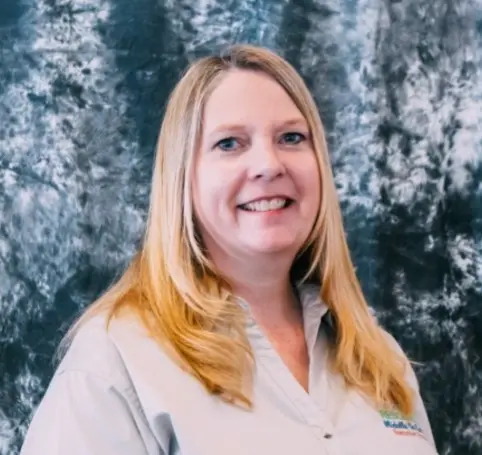
Executive Director

Finance Director
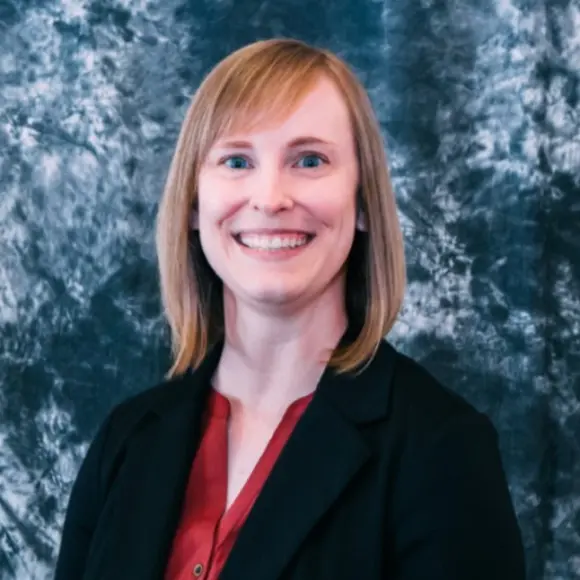
Operations Director
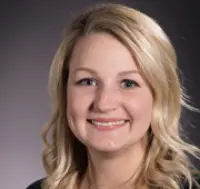
Human Resources Director
Contact Information
211 Ave. M West
Fort Dodge, IA 50501
